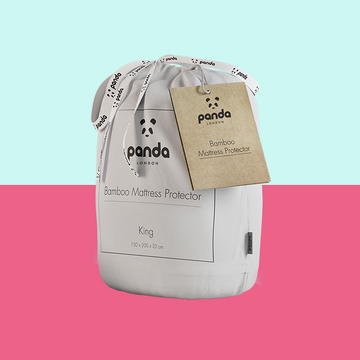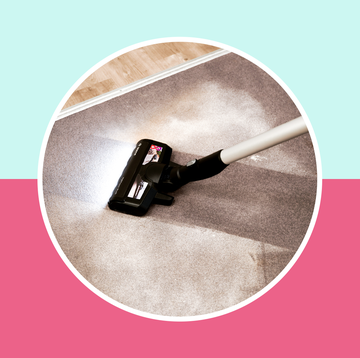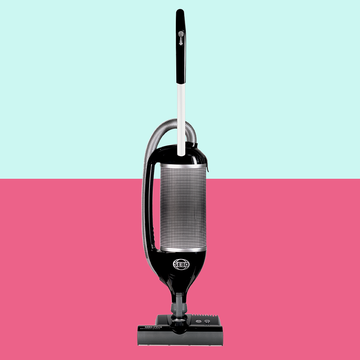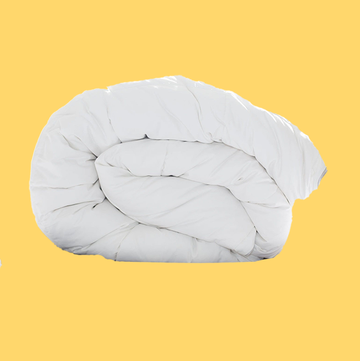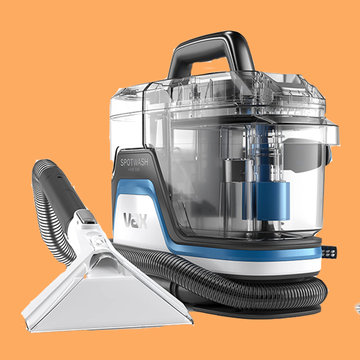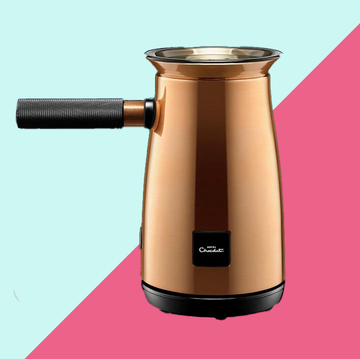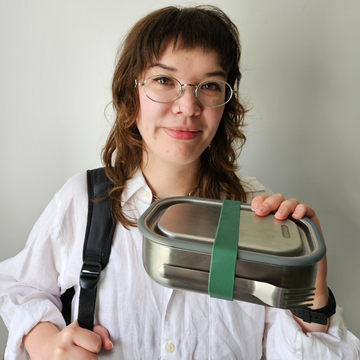We earn a commission for products purchased through some links in this article.
Can anti-snore pillows help you get a better night’s sleep? We put them to the test …
Is this the solution long-suffering partners have been praying for?
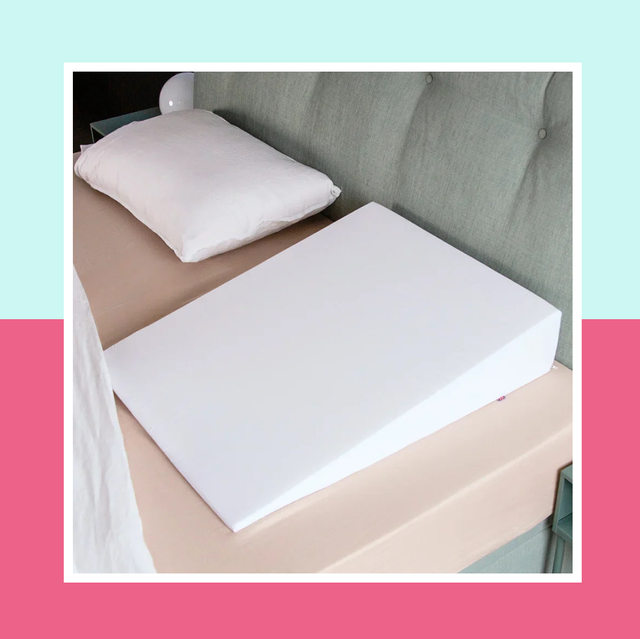
If you’re tired of snoring (or very tired of a partner keeping you awake with theirs) we may have a solution to your sleep deprivation. Whether you (or they) are a full-blown foghorn or are frequently criticised for your “heavy breathing”, how noisy you are at night can have a huge impact on sleep for both you and your partner.
From leaving you both tired and drained to affecting your mood and even your relationship, it's not a problem you should sleep on.
With around 15 million snorers in the UK, it's a very common issue. And sadly, rolling the guilty suspect over isn’t often the quick fix it promises to be.
There are lots of products available that claim to help, whether that’s nasal sprays to hydrate the nose and stop vibrations, or simply ear plugs to block out the noise. But we're here to talk about the newest invention to hit the market: anti-snore pillows, which claim work wonders. The theory goes that by aligning your head and neck, your airways open properly, helping you breathe more freely, and thus reducing your nocturnal cacophony.
While we’re not medical experts, here at the Good Housekeeping Institute, we do know a lot about rigorously testing products against their lofty claims. So, with the help of a panel of snoring sleepers, we got snoozing to see if anti-snore pillows are really worth your money.
Need one now? These are our top-rated pillows in a handy list but keep reading for our snorers' full reviews. However, we do recommend seeking professional advice if snoring is affecting your sleep and therefore quality of life and nothing seems to be working.
The best anti-snore pillows
What causes snoring?
“Snoring occurs when airflow is partially obstructed during sleep,” explains Dr Ana Brito, a sleep physiologist with over 10 years' experience working in NHS sleep departments. “When the airway narrows, airflow becomes turbulent, leading to the characteristic sound of snoring.”
Of course, not everyone snores and those who do, don't necessarily snore all the time. Dr Brito explains that common causes typically include nasal congestion, relaxed throat muscles, obesity and alcohol consumption. Even the position you lie in plays a part. “Sleeping on your back makes you more prone to snoring due to the effects of gravity and relaxation of muscles around your neck,” she says.
As well as its immediate impact on sleep, according to Dr Brito, snoring can also result in daytime fatigue, difficulty concentrating, irritability, and an increased risk of health issues such as high blood pressure, heart disease and diabetes, so it’s important to address it. A medical professional should be able to help you identify your own triggers, and ways to remedy them.
Do anti-snore pillows work? A doctor's verdict
Each case is different – some people snore lightly, while others sound like a freight train. Often mild and moderate snoring is easier to reduce or stop; however, even that can vary, which is why a GP is always the best first port of call.
But, it’s likely that your choice of pillow can make a difference, according to Dr Brito. “Anti-snore pillows are designed to help reduce snoring by promoting better sleep posture,” she explains.
“An elevated position can help drain nasal passages and reduce congestion. It can also reduce pressure on the throat and chest, promoting better airflow and minimising the turbulence that leads to snoring sounds.”
So, what does this mean when you’re shopping for a pillow? “If you tend to sleep on your back, it’s important that your pillow supports the natural curve of your neck,” she advises. “It shouldn’t be too low or too high, to ensure the neck and spine are supported, and your airway remains nicely open during sleep.”
Side sleepers will need something slightly different. Dr Brito advises looking for a pillow that’s not too high as this ensures it won't cover your face or put your neck in a position that affects access to your airways.
“By addressing sleep posture and airway alignment, anti-snore pillows can be a simple yet effective tool for reducing snoring and improving sleep quality,” says Dr Brito.
What to consider when shopping for an anti-snore pillow
As with standard pillows, anti-snore designs come in all shapes and fabrics. Here’s what to bear in mind.
Material
Decide whether you want a pillow filled with down, microfibre, memory foam, or wool. While it comes down to personal preference, a material like foam or latex that's firmer may offer more stability and extra contouring for your head and neck. If you often suffer with allergies though, we recommend a fibre pillow as these are hypoallergenic.
The anti-snore options in this list are made from either fibre, wool, or foam.
Pillow style
Opting for a pillow that’s too high or low, can put your head in a position that reduces airflow, making you snore more. There are two main types of anti-snore pillow on our list below.
Wedge pillows: These gently lift the torso and head to maintain a neutral spine position.
S-shaped pillows: These have a contoured design or a hidden S-shaped core to keep the neck in place and minimise pressure on airways.
When it comes to elevation, any pillow that supports the natural alignment of your neck and head is likely to help reduce snoring. Research has shown that tilting the upper body by 7.5 degrees can reduce sleep apnoea (a condition where the throat muscles relax and block the airway). Sleeping on an incline is also meant to help those who suffer with acid reflux.
Special features
You don't have to pick just one sleep issue to solve. If you get hot at night, look for a pillow with cooling properties like TEMPUR’s Original SmartCool Pillow, which has a cover that’s designed to be cool to the touch.
Or, if you’re not sure what style pillow is right for you, consider one with an adjustable filling like Putnam’s Organic British Wool Contour Pillow. As well as finding the right comfort level, this should help with your snoring too, as you can play around with the height to find the right alignment.
Trial period
Pillows aren’t always cheap, so looking for one with a trial period should give you added peace of mind. We’ve noted which brands offer a trial in the product specs below.
How we test anti-snore pillows
Here at the Good Housekeeping Institute, we’re passionate about helping you get the best night’s sleep possible, so when we came across anti-snore pillows, we knew we had to try them for ourselves. So, we recruited a panel of self-confessed snorers for help. Each tester was tasked with trialling their pillow for several weeks, before sharing comprehensive feedback with us on their experience. They took all of these elements into account in their review.
Comfort
We started with the basics. Testers rated their pillow’s general comfort, firmness levels, and breathability, noting whether the pillow left their heads hot or cool at night. They also told us whether they felt it suited their sleep style, and if it supported their head and neck adequately.
Impact on snoring
Each panel member also shared their verdict on how the pillow performed as an anti-snoring solution. They told us if they woke themselves up less, if their partner was woken up less, and whether they felt more refreshed in the morning. We weighted this feedback highly in our overall scoring, but note that this feedback is anecdotal, and what worked for some of our sleepers may not work for others. Hence our trial period advice above.
In the GHI lab
Back in the lab, our experts conducted wash tests to assess the durability and quality of the pillows. After washing, they checked each one's stitching, filling, and appearance and awarded marks for those that looked as good as new. They then analysed these results along with our panel feedback before awarding a final score.
It’s worth reiterating that we always recommend seeking medical advice if snoring is seriously affecting your sleep quality and energy levels.
But, if you want to give an anti-snore pillow a try, read on for our findings (and thanks to our comfort and wash tests, even if they don't solve all your snoring woes, we don't think you'll be disappointed.)
Megan is the Good Housekeeping Institute’s senior homes and lifestyle writer. She loves diving into the latest product releases to find the very best buys on the market and has written hundreds of product reviews on everything from the best vacuum cleaners and coffee machines to the best ice cream makers and robot window cleaners.
When she’s not writing about the newest gadgets and gizmos for your home and garden, you’ll find her running every distance from 5km to 100km or relaxing at home with her cat – there really is no in between.
Megan has an MA in Magazine Journalism and has previously written for Stylist, Glamour, Women's Health, TimeOut, SquareMeal, and YOU magazine. You can find Megan on Instagram @meganlouisegeall.
Masudah has a master's degree in clinical drug development and combines this scientific background with a love for all things homes – from cooking appliances to smart home tech. She enjoys collecting and analysing quantitative data, ensuring that her product evaluations go beyond mere opinions. She particularly loves using the Digi Eye machine in the GHI lab to assess the colour and texture of products as part of our duvet cover and detergent tests. In her spare time, Masudah enjoys learning about new tech, baking delicious treats, and keeping her home spotless. With a passion for creativity and an eye for detail, she brings a unique perspective to every product she tests.


8 best air purifiers for a cleaner home
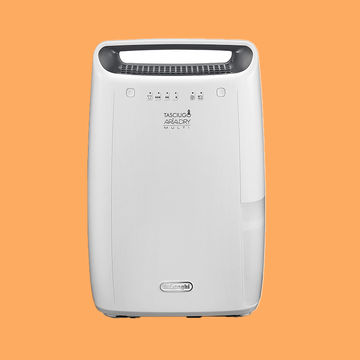
16 best dehumidifiers, tried and tested

The best winter duvets to keep the chill away
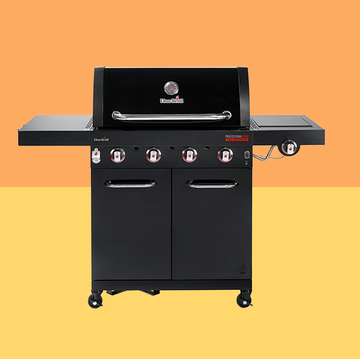
11 best gas BBQs to buy for every garden








